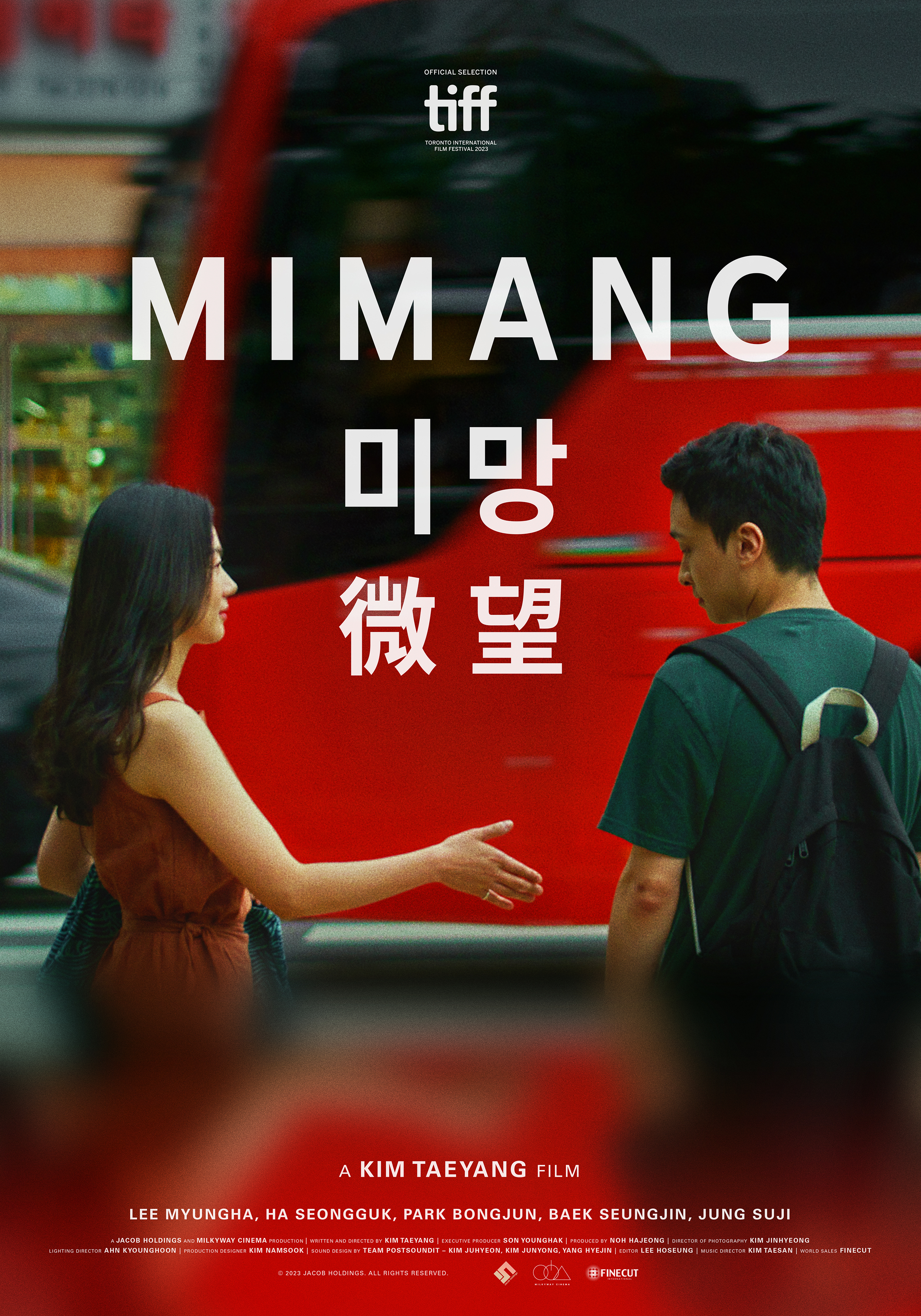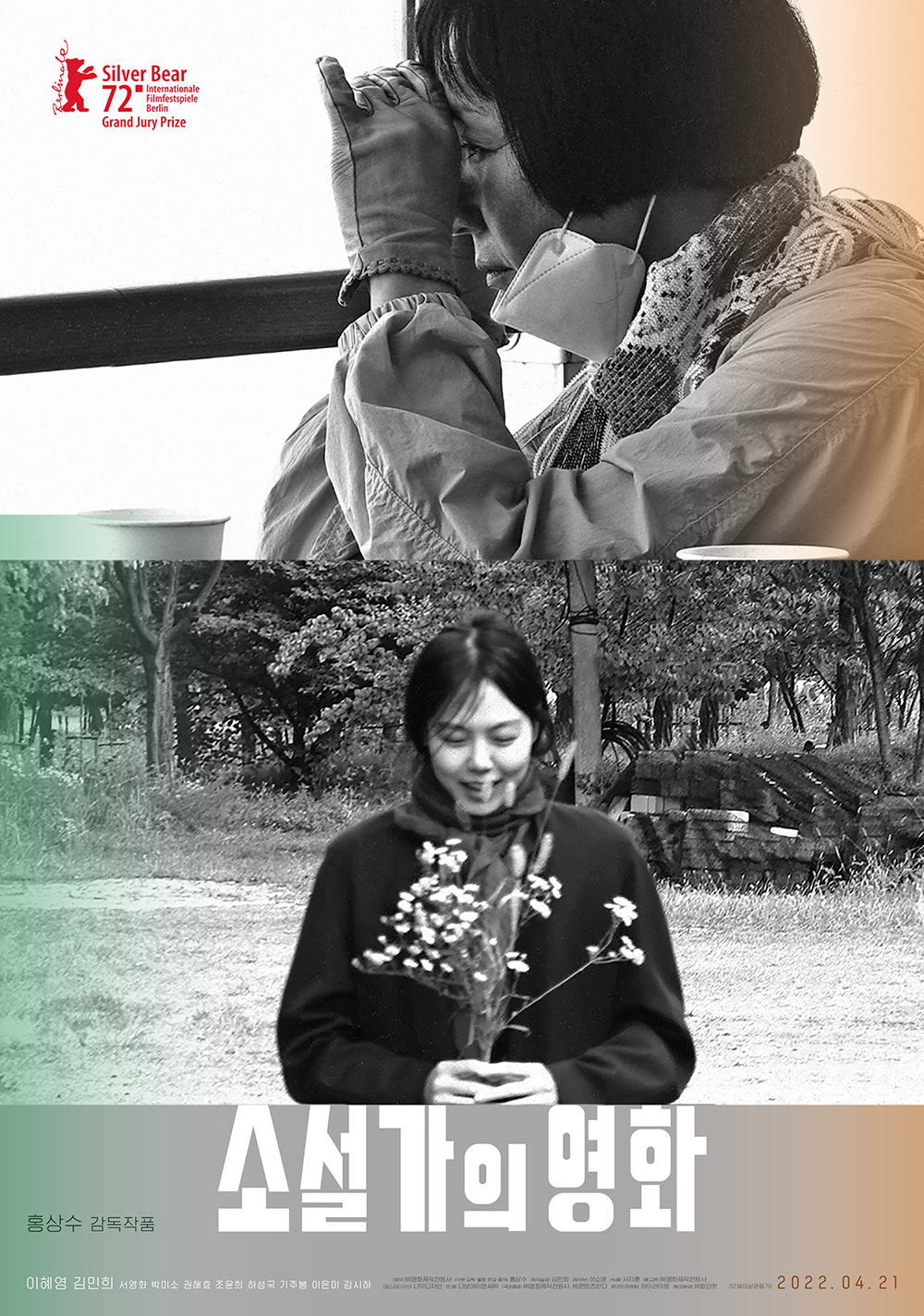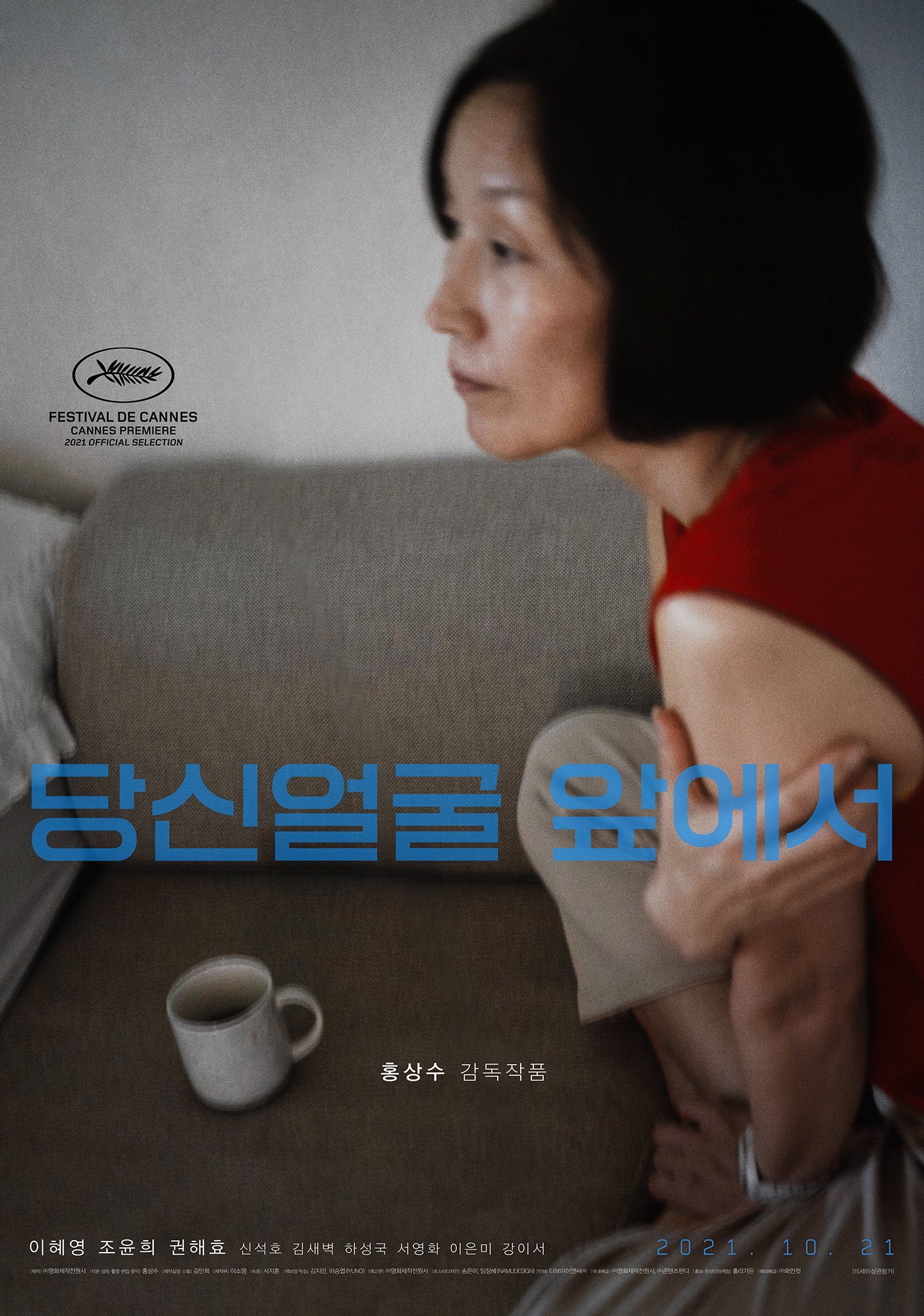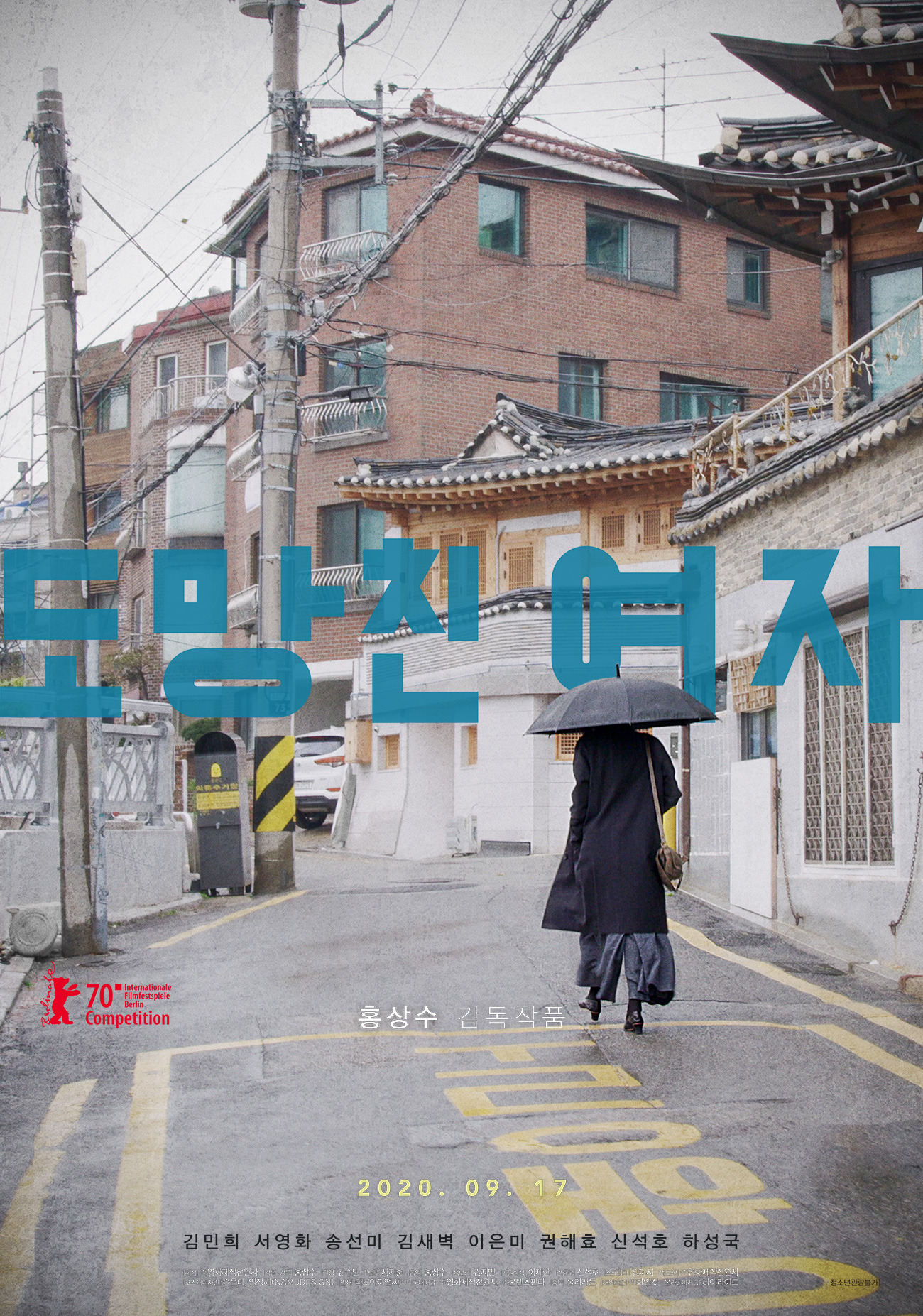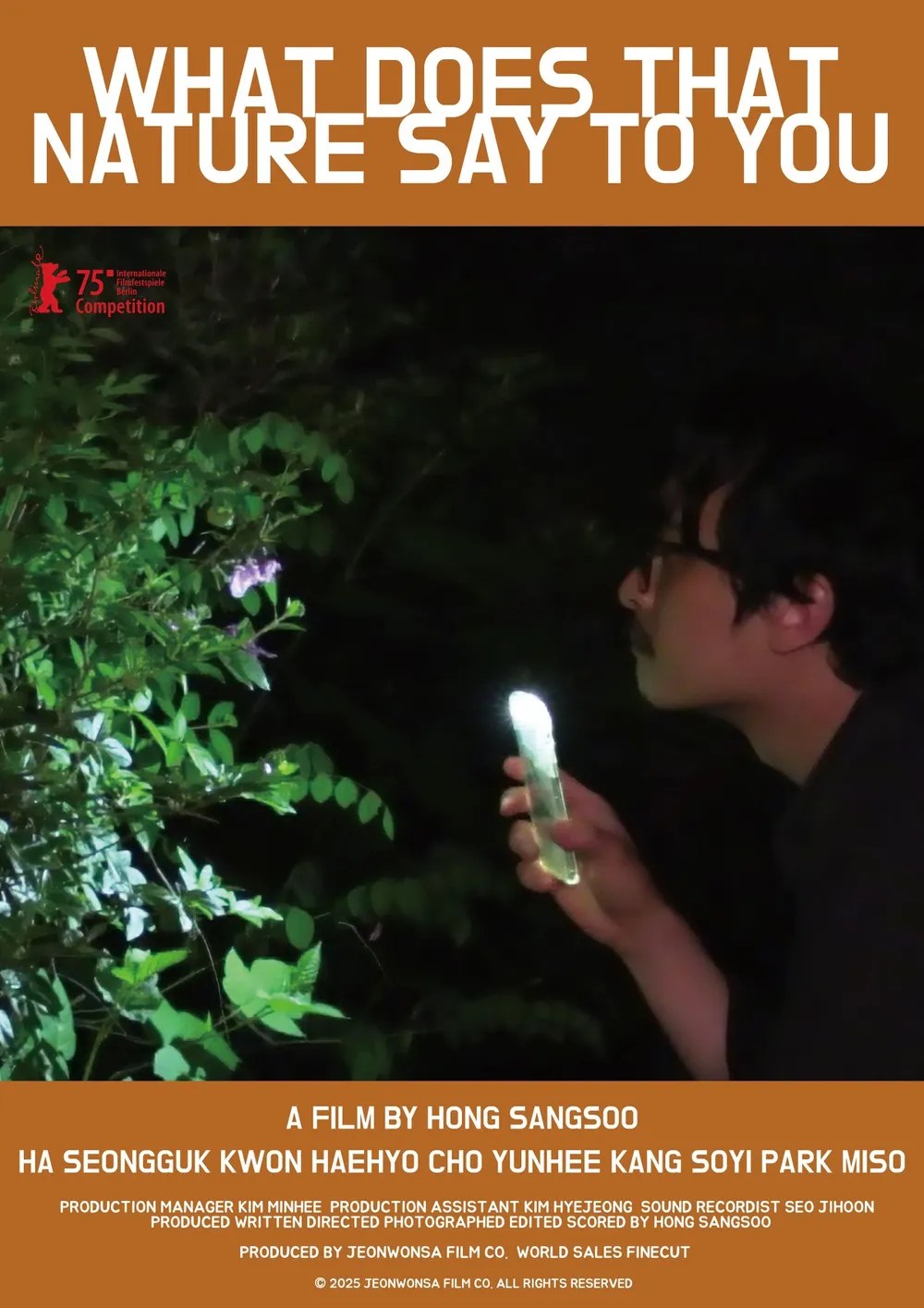
“But you’ve got your father behind you,” Junhee’s (Kang So-yi) older sister Neunghee (Park Mi-so) points to her sister’s boyfriend, Donghwa (Ha Seong-guk), meeting her family for the first time despite dating Junhee seriously for three years. But that’s not the way Donghwa likes to think about it, preferring to deny his privilege and insist that, as he does not take accept anything from his famous father, he’s an “independent” man. This notion is quickly squashed by Junhee who otherwise seems to have accepted Donghwa’s way of life when she admits that it’s more like Donghwa doesn’t like accepting anything from him, but will ask for money when he’s truly desperate. Neunghee subtly tries to remind him that whatever he might say about it, his life is only possible because he has a safety net and to insist otherwise is superficial and childish. But superficial and childish is exactly what Donghwa slowly exposes himself to be in Hong Sang-soo’s latest lacerating character drama, What Does That Nature Say to You? (그 자연이 네게 뭐라고 하니, Geu Jayeoni Nege Mworago Hani)
Donghwa is also, apparently, a little vain in that he needs glasses but doesn’t wear them so to him the world is always a little fuzzy around the edges. This might also explain why Hong films in low grade digital, much like In Water, rendering this otherwise idyllic mountain setting somewhat ugly and ill-defined. Donghwa wasn’t even supposed to be meeting Junhee’s parents today, which is why they sat in his car round the corner for ages after he drove her from Seoul before accidentally bumping into her father so he had little choice other than to stay. He said he’d come two years ago, but for whatever reason didn’t. Neunghee thinks it’s odd they’ve been putting off marriage, cautioning her sister that the “right time” never really exists and you don’t necessarily need to overthink these things, though increasingly she seems to come to the conclusion that the relationship isn’t strong enough because of Donghwa’s insecurities and Junhee’s lack of certainty. Junhee describes her as “depressed”, though Neunghee seems quite upbeat and though you could argue is basically doing the same as Donghwa in relying on her parents while she figures things out, seems to have more of a direction and self-awareness about the way she’s living her life.
Though the initial meeting seems to go well and Donghwa bonds with his father-in-law Oryeong (Kwon Hae-hyo), he has a minor falling out with Junhee after she objects to some of his philosophical ramblings complaining that sometimes she thinks he waxes on about the ineffability of the universe in order to escape his problems. Oryeong later says something similar, that he spends his life evading things, while Jun-hee’s mother Sun-hee (Cho Yun-hee) laments that he hasn’t yet collided with reality and that’s why his poetry lacks substance even though he claimed to be a “poet”. When he says he likes the simple life and is wary of materialism, it’s difficult to know whether it’s a real position or merely an attempt to gloss over his lack of financial standing.
A now irritated Oreyong criticises him for not having his life more in order at the age of 35. Son of a famous TV lawyer or not, he doubts Junhee will be happy with a man still working part time at a wedding venue and as an ad hoc photographer on the weekends. Everyone keeps needling Donghwa about his old banger of a car, a Kia Pride from 1996 for which Oreyong thinks he paid too much seeing as it’s not old enough to be a “classic” car nor reliable enough for use as an everyday vehicle. Donghwa says he just likes it, before admitting that he doesn’t have the money for a new one anyway. The same goes for his recent adoption of facial hair with Oreyong criticising him for only doing it half-heartedly rather than going for the full bohemian poet aesthetic, though he’s likely done it to look a bit more manly and distinguished to gloss over his increasing insecurities about being the only son of a successful man who can’t escape his father’s shadow and still doesn’t seem to have figured himself out as an independent person.
Asking Donghwa what he likes about Junhee might not be entirely fair. It’s not as if love needs a reason. But his characterisation of her as an “angel” is also superficial, even if her family’s constant remarking on her upright character might be the same. Yet for all that, this awkward meeting filled with social niceties, and the wisdom of Junhee’s parents who think this relationship is not likely to last but know it’s better to let Junhee figure that out for herself, might be the collision with reality that Donghwa has been needing in showing him how childish and superficial his behaviour and lifestyle and have really been. Or at least, he’s beginning to realise they’re right about the car and maybe it’s time he set himself up straight if he is actually serious about his future with Junhee.
What Does That Nature Say to You screens as part of this year’s San Diego Asian Film Festival.


